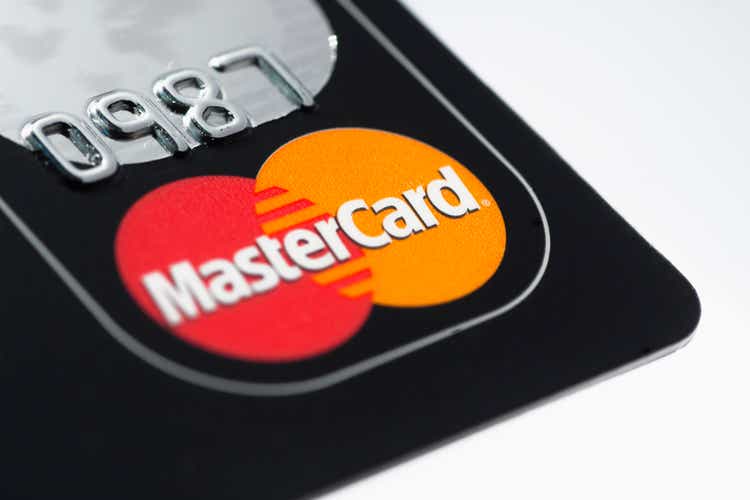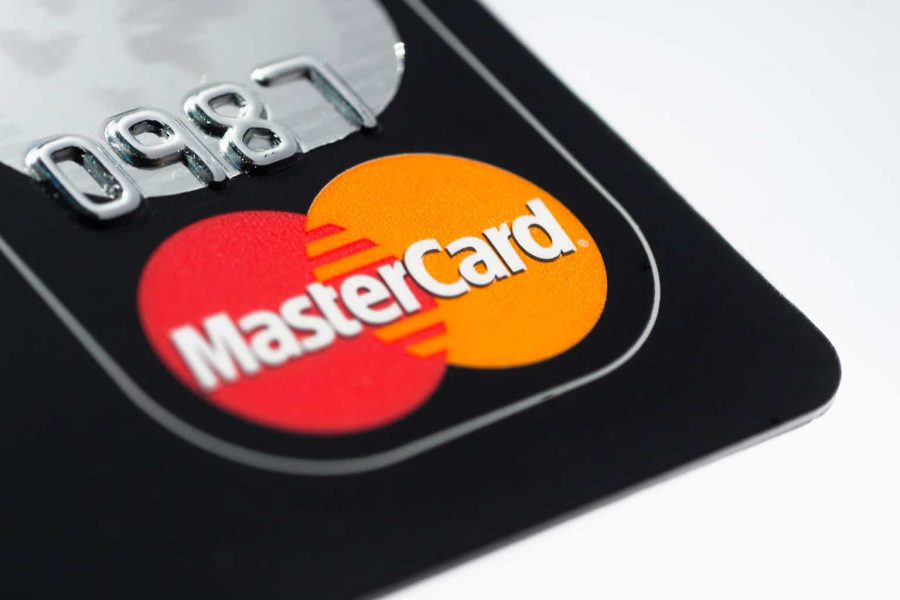Summary:
- Mastercard is a hold going into earnings, but could become a buy if it exceeds expectations.
- U.S. consumer spending has been strong, benefiting the entire card sector.
- Mastercard faces risks from interchange fees, competition from other payment technologies, and regulatory challenges.
jbk_photography
Investment Thesis
Heading into earnings on May 1st, I believe Mastercard (NYSE:MA) is a hold. Despite this period being a traditionally weaker one for the payments processor, the company has historically been capable of surpassing Wall Street’s earnings expectations, meaning I could move to a buy if the company exceeds expectations early next month. U.S. consumer spending has exhibited surprising resilience so far this year, as indicated by recent economic data. In particular, retail sales have witnessed a much stronger comeback to benefit the entire card sector with a boost in transaction volumes directly contributing to their revenue streams.
However, both Visa and Mastercard face ongoing risks related to interchange fees. Their recent fee settlements and ongoing litigation suggest a potential crimp in revenue from regulatory pressures to cap interchange fees. This includes concerns over U.S. and Europe regulatory challenges that impact Mastercard’s profit margins.
I also think that Mastercard’s duopoly with Visa puts it at risk of disruption from other payment technologies. PayPal, for example, has aggressively expanded its services over the last few years by offering more direct payment options that divert transaction volume away from traditional card networks. With this I am a hold until after earnings.
Background: The Consumer Is Still Strong
Consumer spending increased by 0.8% in February 2024, marking the largest gain since January 2023, and when adjusted for inflation, real consumer spending rebounded by 0.4%, underpinned by robust real wage and income growth that continue to lift consumer expenditures.
With consumer spending accounting for a substantial portion of the country’s economic activity, any increase translates into more frequent use of payment processing services such as those offered by Mastercard. The rise in consumer spending directly influences the volume of transactions processed through the company’s network so it can generate interchange fees, which are its primary revenue source.
Moreover, the slowdown in core price inflation which reached 2.8% YoY and a strong labor market have bolstered consumer confidence and spending power through more frequent and higher-value transactions on credit and debit cards.
The U.S. economy, despite higher borrowing costs, suggests that consumer spending will continue to be a solid pillar supporting economic activity. However, this may not be sustained for long, according to Bank of America CEO Brian Moynihan who said in an interview that spending growth has decreased from 10% in 2023 to only 3% to 4% more recently. In addition, the overall delinquency rate on credit card loans in the U.S. now stands at 3.1%, which is the highest rate in 13 years.
Q1 Expectations
I expect Mastercard’s earnings to rise in Q1 2024 as it releases its report on May 1st. Consensus EPS estimate call for Q1 2024 earnings to come in at $3.24, up from $2.80 YoY. Revenue is projected to reach $6.34 billion, higher than the $5.75 billion (+10.36%) from what the payments giant recorded a year ago.
However, I think that the revenue will be impacted by the quarter’s performance in some of its divisions. Mastercard CFO Sachin Mehra doesn’t expect better value-added services and solutions revenue this quarter. During a symposium in March 2024, he said:
That part of our product capability set continues to be in very high demand. We continue to see strong demand across our customers for it. However, what I did mention on our earnings call was that in Q1 of this year, we would expect to see lower growth rate relative to other quarters in this year, primarily driven by tougher comps from Q1 of last year. Last year we had a really strong Q1 on value added services and solutions growth. – BofA Virtual Electronic Payments Symposium
What I Will Be Watching For On The Call
One important issue that I expect to be discussed by Mastercard on its next earnings call is the impact of Capital One’s (COF) acquisition of Discover Financial Services (DFS) in February 2024 in an all-stock transaction valued at $35.3 billion. CFO Mehra had initially addressed this last March but not much about its long-term impact. He said:
We’ve got debit volumes which run over Mastercard’s rails, which are issued today by Capital One. And so we expect that that will get impacted. But then the larger set of volumes that we have is on the credit side. And you’ve also heard Capital One talk about their intent to continue to work with the networks on the credit side. So I continue to believe that given the strength of our relationship, there will continue to be opportunities for us to continue to grow our relationship with.- BofA Virtual Electronic Payments Symposium
I agree with an analyst’s opinion that the plan of Capital One to move about 25% of its total cardholders to Discover network will not cause an industry disruption since it could only affect 10% of the industry’s total card spending, and only 2.1% of Mastercard’s payment volume. However, this can have serious implications with Mastercard and Visa in terms of network fees.
With this, I look forward to knowing how the company can maneuver its trajectory in the industry given the tight competition against Visa and other emerging payments system companies. CEO Michael Miebach admitted how “stiff” the competition is during an interview but as to what they are planning to do this year remains unknown, which is what investors need to hear during the earnings call.
Risks To Thesis
A big reason I am a hold is because I think the business model for Mastercard faces some note able threats. There are several risks that I believe could impact Mastercard’s profitability in the medium and long-term.
Visa and Mastercard announced that they will reduce published credit-card interchange fees charged to merchants by four basis points in for at least three years and guarantee an average rate seven basis points below the current average for the next five years in response to antitrust settlements. While this is a win for merchants and retailers that have fought against the duopolistic practices, analysts warn that this will affect the two companies’ revenues since it is estimated they can lose around $30 billion worth of credit card fees over the next 5 years.
With this, regulatory risks are likely not going to go away. I believe that the continued scrutiny by financial regulators not just in the United States, but also in Europe, could impact the company’s earnings in the long run. An antitrust regulation on interchange fees was issued by the European Union in 2015, which caps fees at 0.2% of the transaction value for debit cards and 0.3% for credit cards. However, Mastercard Europe defended last year its decision after Brexit to raise these rates to 1.15% and 1.5% for debit card and credit card transactions, respectively, which drew the ire of consumer groups and the UK’s Payment Systems Regulator.
Third, increased competition will threaten Mastercard’s profitability in the near term. PayPal, for instance, has been aggressive in introducing ancillary services such as Buy-Now Pay Later offerings and savings products. Other small players are also beginning to take traction. In February 2024, the European Union Council allowed customers to make instant payments in euros within 10 seconds at any time, even outside business hours, and in any EU member state. This was introduced to support fintech companies offering more affordable services compared to Mastercard and Visa.
Finally, the Credit Card Competition Act, a bipartisan bill that plans to break up the Visa-Mastercard duopoly, would allow large banks to select the payment network that can be used for transactions using credit cards. Merchants would now have the option to select Mastercard’s competitors that offer lower interchange fees. While this benefits businesses, analysts point out that small players that do not have the same capabilities of Visa and Mastercard in terms of security and user rewards can take a large portion of the market. This, in my opinion, could likely eat up a huge chunk of the two companies’ earnings if it passes.
Takeaway
With earnings just around the corner and given these headwinds, I am hold (vs. a sell) for Mastercard primarily because of its demonstrated capability to exceed Wall Street’s earnings expectations consistently, and its potential strong earnings in Q1 2024. The rising consumer spending fueled by real wage and income growth, suggests that the company will continue to benefit from high transaction volumes in the near term.
However, investors need to be aware that the strong competition posed by other digital payment platforms like PayPal, which offer direct and possibly more cost-effective transaction methods, poses a significant threat to traditional card networks. These platforms could erode a portion of transaction volume away from Mastercard. Moreover, the regulatory implications of major industry movements, such as Capital One’s acquisition of Discover Financial Services, and the changes in interchange fees need careful monitoring as they could affect Mastercard’s fee structures. The company’s core business is sound so long as no one disrupts it (through competitive or regulatory means). Thats the big if. I’m interested to see what management has to say.
Analyst’s Disclosure: I/we have no stock, option or similar derivative position in any of the companies mentioned, and no plans to initiate any such positions within the next 72 hours. I wrote this article myself, and it expresses my own opinions. I am not receiving compensation for it (other than from Seeking Alpha). I have no business relationship with any company whose stock is mentioned in this article.
Noah Cox (account author) is the Managing partner of Noah’s Arc Capital Management. His views in this article are not necessarily reflective of the firms. Nothing contained in this note is intended as investment advice. It is solely for informational purposes. Invest at your own risk.
Seeking Alpha’s Disclosure: Past performance is no guarantee of future results. No recommendation or advice is being given as to whether any investment is suitable for a particular investor. Any views or opinions expressed above may not reflect those of Seeking Alpha as a whole. Seeking Alpha is not a licensed securities dealer, broker or US investment adviser or investment bank. Our analysts are third party authors that include both professional investors and individual investors who may not be licensed or certified by any institute or regulatory body.
